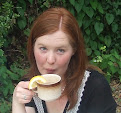
I did, however, really enjoy All About Eve, especially because I hadn't seen anything with Bette Davis in it before and it turns out she's great. She plays Margot Channing, a theatre icon whose place in the limelight is stolen by a younger actress who edges her way into Margot's life. Margot's biting wit and temper are so satisfying. The film also features Marilyn Monroe in one of her early roles as a young actress using all her charms to try to get work. It's quite long for the amount of story it tells and cutting some bits definitely wouldn't have done it a disservice. But we thought perhaps in those days going to the cinema was a bit of an event and people wanted to get their money's worth, so would have felt ripped off by a film that was less than 2 hours long. My only other gripe was that I do remember at one point saying, 'Well this script was clearly written by a man' because of some of the lines about what it is to be a woman, marriage etc. But such is the nature of movies of those times.

I just managed to read a book I got for Christmas in 2009 before Christmas 2010 rolled around. I always seem to have a pile of books waiting to be read and not enough time to read them, which I'm sure is the case for lots of people. This was Trust: A True Story of Women and Gangs by Pip Desmond. I was in the mood for some non-fiction and this was good because it was still very much storytelling, the stories just happened to be true. Aroha Trust was a work cooperative set up in Wellington in 1977, so I loved being able to picture lots of the places being mentioned - particular streets etc. It's pretty sobering reading about the upbringings of the women who became part of the work cooperative, many of whom had spent time living on the streets and were closely associated with gangs such as Black Power and the Nomads. The book also tells what the women involved in the Trust are doing now and some still live pretty hard lives. An eye-opening book that helps provide an insight into parts of New Zealand society, without being sensationalist or overly depressing.

On an entirely different note, following on from reading Little House in the Big Woods earlier in the year, I just finished Little House on the Prairie. It's so hard to imagine arriving in the middle of a giant prairie, setting up from scratch (with all the hard work and ups and downs that involves) and then having to unexpectedly leave again only a year later but still managing to stay positive about it all. I really loved the descriptions of the prairie, that feeling of being surrounded by grass, not a building in sight, with endless sky above. Their lives are lived so simply but they seem so satisfied - the girls are unspeakably thrilled when they get their very own tin cup each for Christmas, having had to share one previously. And the image of Pa playing his fiddle at night in the log house seems so wholesome and quaint.
I did wonder whether the way they speak about and view the Native American Indians on whose land they're settling (illegally it turns out) would make me so keen to read it to my or someone else's children. I guess because the Indians are seen by the family as this big threat (Ma is terrified of them) when actually the Ingalls family are the ones who are impinging on the Indians' territory. While killing all the settlers is not the best way of dealing with the situation (and the Ingalls call Du Chene 'a good Indian' because he stops this from happening), the Indians have every right to be angry about it and want to make them leave and this isn't really made clear in the book - naturally, because it's from the Ingalls' perspective. I guess as long as you talked about it with whomever you were reading it to it would be fine, I just don't like the idea of the countless children who've walked away from the book thinking, 'Poor Laura, the Indians made her and her family go away after all that work they'd done.' To be fair, Pa Ingalls does seem to have a pretty fair outlook on the situation and blames the Government for saying that that land would soon be opened to settlement as opposed to the Indians for trying to kick them out. But the situation isn't explicity explained and so it's definitely open to unfair interpretation of the Indians' actions.
Maybe I'm just being overly liberal and politically correct in my concerns. It's such a great book for describing life at that time and Laura is such an endearing character. Although Baby Carrie surely needs to stop being a baby now. She was already born in the Big Woods book and they're on the prairie for a year so she must be at least 2 years old.
Clearly I am overthinking these books!


No comments:
Post a Comment